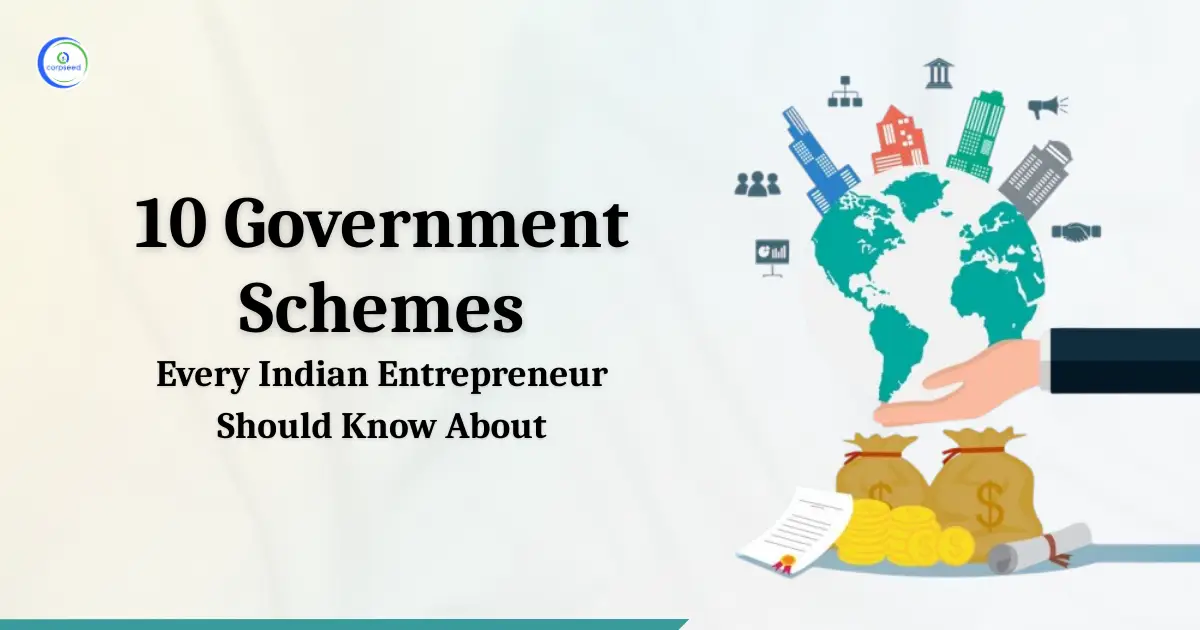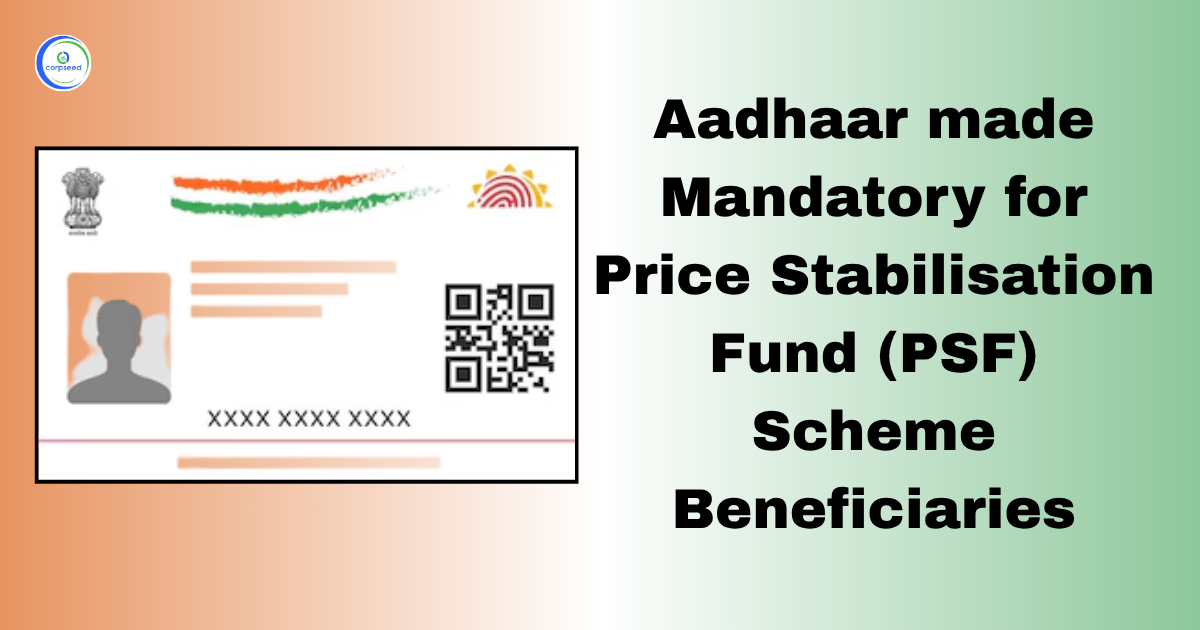India is emerging as a hub for entrepreneurship, with millions of new businesses registered annually in various sectors. To support this rapid growth in enterprise, the Indian government has introduced numerous schemes aimed at minimizing the financial, regulatory, and operational burdens faced by businesses. These schemes provide support in the form of funding, tax exemptions, infrastructure support, digital skills, and mentorship, which creates a strong ecosystem for startups and small businesses.
Table of Contents
Understanding Government Schemes for Indian Entrepreneurs
Starting and running a business in India comes with its own unique set of challenges, from navigating the complex regulatory framework to obtaining proper funding. Identifying these constraints, the Indian government has introduced numerous schemes aimed at helping entrepreneurs, startups, and MSMEs. These measures offer much-needed financial support, tax breaks, skill development, and market access to help businesses grow sustainably.
Whether you’re starting a new venture or scaling up an existing one, understanding and taking advantage of these government schemes can offer a major competitive advantage. By using these tools, businesses can reduce risks, enhance operational efficiency, and increase innovation.
Benefits of Government Schemes for Businesses
Entrepreneurship is often filled with ambiguity and challenges that test perseverance. Government schemes offer essential help and resources, which help entrepreneurs overcome obstacles and build a strong foundation of success. The following are some of the key benefits entrepreneurs can expect from government schemes:
- Access to Affordable Capital: Many schemes provide subsidized loans or collateral-free credit, allowing entrepreneurs to secure essential funding without the weight of high-interest rates or demanding collateral requirements.
- Tax Relief and Financial Incentives: Startups and MSMEs can take advantage of income tax holidays, exemptions and other financial benefits that reduce financial stress during the crucial initial stages of their business.
- Simplified Regulatory Compliance: Government schemes simplify processes such as company registration, patent filing, and licensing, saving entrepreneurs’ valuable time and minimizing bureaucratic complexities.
- Skill Development and Mentorship: Through training programs, incubators, and mentorship, entrepreneurs gain the essential information and guidance to innovate, improve, and scale their projects with confidence.
- Inclusive Growth and Empowerment: Special focus on women, SC/ST entrepreneurs, and backward communities, promote diversity and economic inclusion, ensuring a fair chance for success.
- Promotion of Digital and Technological Advancement: Support for adopting modern digital tools and technologies allows businesses to increase productivity, reach wider markets and remain competitive in today’s digital economy.
--------------Blog Contact Form-------------
Key Government Schemes Every Indian Entrepreneur Should Know About
Government initiatives offer important support to entrepreneurs by providing financial support, streamlining processes, and promoting innovation. These programs are designed to help startups and MSMEs overcome challenges and quicken growth efficiently. Below are the most effective schemes available.
- Startup India Initiative: Launched in 2016, The Start-up India initiative is one of the important programs of the government to promote innovation in India and facilitate the growth of startups. Startups recognized under this initiative enjoy numerous benefits, including a 3-year income tax holiday, exemption from capital gains tax, faster patent applications, and easier public standards. Businesses are required to register through the Official Startup India Portal and fulfill specific eligibility criteria, including less than 10 years old and having an annual turnover below ₹100 crore. Recognized startups can even access the government’s Fund of Funds for Startups (FFS), which assembles domestic capital for early-stage investment.
- Stand-Up India Scheme: The Stand-up India scheme aims to encourage entrepreneurship among women and backward classes, especially SC or ST entrepreneurs. Under this scheme, banks will lend ₹10 lakh to at least one SC/ST borrower and one woman borrower per branch for setting up Greenfield enterprises. It covers the manufacturing, services and trade sectors. The borrower should not previously taken advantage of any loan under this category. Financial assistance is given with low interest rates and flexible repayment terms.
- MUDRA Loans under PMMY: The Pradhan Mantri MUDRA Yojana (PMMY) was established to offer non-corporate, non-farm small/micro enterprises with funding requirements. Loans are categorized into three tiers, Shishu (up to ₹50,000), Kishor (₹50,000 to ₹5 lakh), and Tarun (₹5 lakh to ₹10 lakh), based on the stage of the business. These loans do not need collateral and are extended by public sector banks, private banks, regional rural banks, cooperative banks, MFIs, and NBFCs. The scheme is extensively popular among small traders, shopkeepers, artisans, and service-based businesses.
- Credit Guarantee Fund Trust for Micro and Small Enterprises (CGTMSE): Collateral requirements often limit access to credit for small businesses. The CGTMSE scheme provides credit guarantees to banks and financial institutions that lend to eligible micro and small businesses without collateral. Entrepreneurs can get a loan of up to ₹2 crore under this scheme. In case of default, the trust covers a large portion of the loss suffered by the lender. It mitigates the perceived risk for banks and increases access to institutional finance for start-ups and MSMEs.
- Atal Innovation Mission (AIM): The Atal Innovation Mission, launched by NITI Aayog, supports innovation and entrepreneurship across schools, universities, and startups. It functions Atal Incubation Centres (AICs) that offer infrastructure, mentorship, and access to early-stage capital for startups. Selected startups can get grants and seed funding of up to ₹1 crore to develop and scale innovative, technology-based solutions. For younger students, Atal Tinkering Labs (ATLs) stimulate problem-solving and design thinking from an early age, promoting a culture of innovation.
- MSME Champion Scheme: The scheme is a combined platform aimed at supporting MSMEs in a more united and systematic way. It includes components like SAMADHAN), government procurement (SAMBANDH), and quality certification (ZED, Zero Defect Zero Effect). The scheme offers financial incentives and grants of up to ₹ 10 lakh to MSMEs for quality enhancement, technology adoption, and capacity building, aiding them in scaling and becoming export-ready.
- National Small Industries Corporation (NSIC) Support: NSIC, a public sector enterprise under the Ministry of MSME, provides a comprehensive package to help small businesses grow and compete. It offers credit facilitation with loan support usually ranging from ₹10 lakh to ₹1 crore, along with raw material procurement assistance, performance and credit rating support, and marketing assistance for both domestic and international markets. Entrepreneurs can also profit from NSIC’s skill development programs, incubation centers, and technology support initiatives, making this scheme especially valuable for manufacturing and export-oriented MSMEs.
- Production Linked Incentive (PLI) Scheme: The PLI scheme aims to promote domestic manufacturing in 14 key sectors like electronics, pharmaceuticals, automobiles, telecom, textiles and solar modules. Eligible manufacturers can get direct financial concessions of 6% to 10% on increased sales of goods manufactured in India over a period of five years. This scheme is highly beneficial for established players and high-growth startups that want to scale up and make India a global export hub. PLI also foster backward integration and import alternatives.
- Pradhan Mantri Employment Generation Programme (PMEGP): PMEGP is a flagship credit-linked subsidy program that allows first-time entrepreneurs to set up micro-enterprises. It is instigated by the Khadi and Village Industry Commission (KVIC) and provides financial assistance in the form of subsidized loans. Businesses can get subsidies ranging from 15% to 35% on the basis of their location and social category. The scheme covers both urban and rural areas and supports activities from manufacturing to service-oriented businesses.
- Digital MSME Scheme: To encourage digital transformation in micro, small and medium enterprises, the government introduced the Digital MSME Scheme. It supports the adoption of cloud-based IT solutions and digital technologies to increase efficiency, minimize costs and improve service delivery. The scheme also contains workshops, training, and subsidies on subscription-based software tools for accounting, ERP, e-commerce, and CRM. With digital competence being important to compete, this scheme is a timely support system for modern businesses.
Conclusion
Government schemes in India are playing an important role in reshaping the entrepreneurial ecosystem by making resources, funding and institutional support more available than ever before. Whether you’re an aspiring founder, a small business owner, or an experienced entrepreneur, taking advantage of the right scheme can substantially improve your chances of success. These 10 schemes not only cover the fundamentals of finance and compliance but also support innovation, inclusion, sustainability and digital transformation.
To start, discover the official portal of each scheme, evaluate your eligibility, and apply with complete documentation. Understanding the full spectrum of government support available can help you build a robust, adaptable, and scalable business in India’s fast-growing economic landscape.
This portion of the site is for informational purposes only. The content is not legal advice. The statements and opinions are the expression of author, not corpseed, and have not been evaluated by corpseed for accuracy, completeness, or changes in the law.
BOOK A FREE CONSULTATION
Get help from an experienced legal adviser. Schedule your consultation at a time that works for you and it's absolutely FREE.




_for_Compressed_Biogas_(CBG)_Corpseed.webp)




_Scheme_in_India_Corpseed.png)